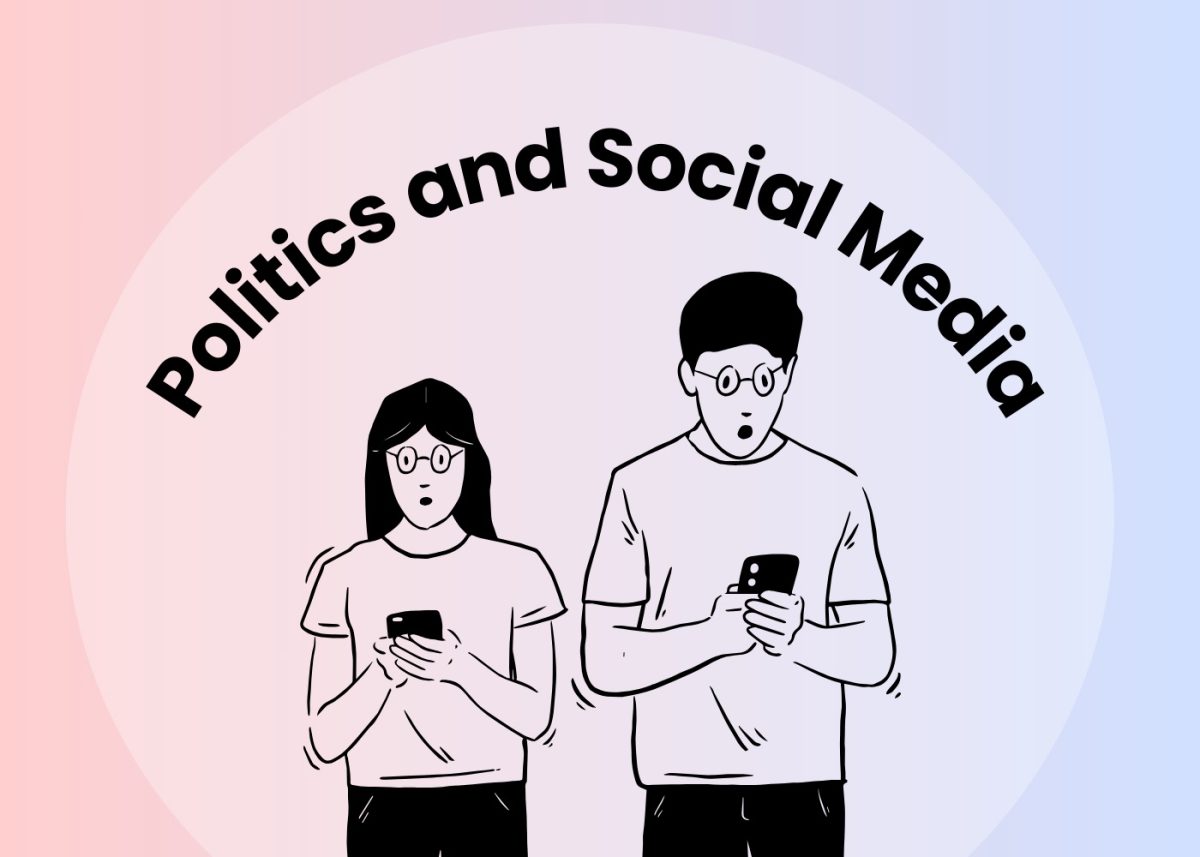In this day and age, we get our information through technology and social media outlets, whether that information is true, false or open to discussion. We take things either too literally or with a grain of salt. How did it come to this? What’s the upside to politicians pushing their agenda online? Has social media become bloated with “what ifs” and dead-end debates?
Social media has emerged as an influential instrument for influencing public opinion and forming narratives in our digital era. The importance of social media platforms like Facebook, Instagram, TikTok and X in fostering political participation is becoming increasingly apparent in the 2024 elections. These platforms are now the battlefields where campaigns are won and lost rather than just being amusement places.
According to a recent Pew Research Center poll, most X users (59%) use the platform to stay up to date on political events. Meanwhile, 36% of TikTok users and 26% of Facebook and Instagram users said the same.
Social media has made politics more accessible than ever before. Politicians can reach millions of users, allowing them to interact with voters in real time and tailor messages about their agendas to certain demographics. This could encourage civic engagement, strengthen political voices and support campaigns, especially among the younger generation.
The usage of social media is correlated with youth participation in several ways, according to research from Jörg Matthes, director of the Department of Communications at the University of Vienna.
His findings suggested, “The gap in voter turnout between young adults and older generations has not significantly decreased, despite a skyrocketing rise of social media use on the side of young adults, and the overwhelming research evidence that social media use fosters offline political participation.”
However, it has some serious drawbacks, prominent among them being the rapid spread of false information and controversial material that has the potential to influence the political landscape.
According to the American Psychological Association, when false information evokes powerful emotions or fits with social standards or personal identity, people are more likely to spread it.
“Psychological factors contribute significantly to this process: People are more likely to share misinformation when it aligns with personal identity or social norms, when it is novel, and when it elicits strong emotions,” APA said.
APA also said, “Mainstream news outlets tend to have robust safeguards in place to prevent and correct false claims, but several unique features of social media encourage viral content with low oversight.”
In the weeks following the 2020 presidential election, Donald Trump tweeted over 400 times alleging election fraud, resulting in the popularity of hashtags such as #StopTheSteal. Many people became persuaded that the election had been manipulated as a result of this irrational narrative, which swiftly propagated on Facebook, Twitter and other platforms. His millions of followers magnified and reposted his messages, which fueled his base’s anger and fostered mistrust of the democratic process.
The result of this was the Capitol riot on Jan. 6, 2021, when a group of Trump supporters rushed the U.S. Capitol, believing they were protecting democracy from a rigged election. One of the worst days in recent U.S. political history, the violence ended in many injuries.
Twitter (now known as X) and other social media sites were used to plan the event and share misleading information. Some rioters used private Facebook groups and Telegram channels to coordinate or live-stream the attack.
We must consider whether social media platforms enhance our political discourse or influence false information as politicians continue to use these platforms. Furthermore, how can voters use these digital platforms to make wise choices as the elections get near?
The digital age has made political information more widely available, but it has also made it simpler to come across false information and emotional manipulation. When the 2024 election approaches, voters can make informed decisions by looking at reliable sources, fact-checking material, participating in fair debates and being conscious of algorithmic biases. These tactics guarantee that voters continue to use critical thinking abilities and base their choices on the truth rather than feelings or sensationalism.
Research before voting and create an opinion before arriving at the voting booth.


